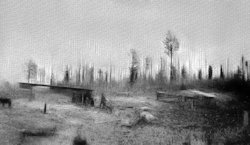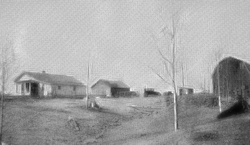A STAKE IN THE LAND
AMERICANIZATION STUDIES
ALLEN T. BURNS, DIRECTOR
A STAKE
IN THE LAND
BY
PETER A. SPEEK
IN CHARGE, SLAVIC SECTION
LIBRARY OF CONGRESS
HARPER & BROTHERS PUBLISHERS
NEW YORK AND LONDON
1921
A Stake in the Land
Copyright, 1921, by Harper & Brothers
Printed in the United States of America
PUBLISHER'S NOTE
The material in this volume was gathered by theDivision of Rural Developments of Studies inMethods of Americanization.
Americanization in this study has been consideredas the union of native and foreign bornin all the most fundamental relationships andactivities of our national life. For Americanizationis the uniting of new with native-bornAmericans in fuller common understanding andappreciation to secure by means of self-governmentthe highest welfare of all. Such Americanizationshould perpetuate no unchangeable political,domestic, and economic regime deliveredonce for all to the fathers, but a growing andbroadening national life, inclusive of the bestwherever found. With all our rich heritages,Americanism will develop best through a mutualgiving and taking of contributions from bothnewer and older Americans in the interest of thecommonweal. This study has followed such anunderstanding of Americanization.
FOREWORD
This volume is the result of studies in methodsof Americanization prepared through funds furnishedby the Carnegie Corporation of New York.It arose out of the fact that constant applicationswere being made to the Corporation for contributionsto the work of numerous agencies engagedin various forms of social activity intended toextend among the people of the United Statesthe knowledge of their government and theirobligations to it. The trustees felt that a studywhich should set forth, not theories of socialbetterment, but a description of the methods ofthe various agencies engaged in such work, wouldbe of distinct value to the cause itself and to thepublic.
The outcome of the study is contained in elevenvolumes on the following subjects: Schooling ofthe Immigrant; The Press; Adjustment ofHomes and Family Life; Legal Protection andCorrection; Health Standards and Care; Naturalizationand Political Life; Industrial and EconomicAmalgamation; Treatment of ImmigrantHeritages; Neighborhood Agencies and Organization;Rural Developments; and Summary.The entire study has been carried out under the[Pg viii]general direction of Mr. Allen T. Burns. Eachvolume ap

